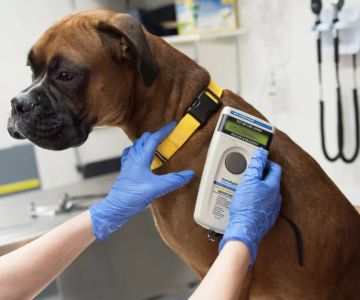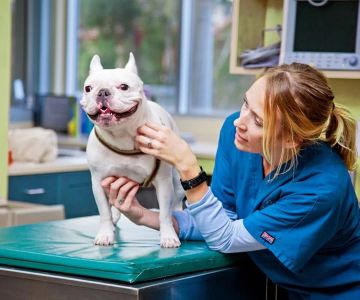Can a Veterinarian Become Rich? Understanding Financial Success in Veterinary Medicine
- 1-Veterinary-Career-and-Income-Overview
- 2-Factors-Influencing-Veterinary-Earnings
- 3-Specializations-That-Boost-Income
- 4-Successful-Veterinary-Business-Models
- 5-Real-Life-Stories-of-Wealthy-Veterinarians
- 6-Strategies-to-Maximize-Veterinary-Income
- 7-Why-Invest-in-Veterinary-Education-and-Tools
1. Veterinary Career and Income Overview
The question “can a veterinarian become rich?” often arises among students and professionals considering or pursuing veterinary medicine. Traditionally, veterinarians earn a respectable income, with median salaries in the U.S. around $100,000 annually. However, “rich” is subjective and depends on various career choices, geographic location, and financial management.
Veterinary medicine offers stable and fulfilling work caring for animals, but income growth may require strategic planning and diversification beyond basic clinical practice.
2. Factors Influencing Veterinary Earnings
Multiple factors impact how much a veterinarian can earn:
- Practice Type: Working in private clinics, corporate hospitals, research, or industry roles affects salary levels.
- Location: Urban areas and regions with high pet ownership typically offer better earning opportunities.
- Experience: Years in practice and reputation contribute to income growth.
- Business Ownership: Veterinarians who own clinics often have higher earning potential but also greater financial risk.
Understanding these factors helps vets align their careers with financial goals.
3. Specializations That Boost Income
Certain veterinary specialties command higher salaries due to advanced skills and demand. These include surgery, dermatology, dentistry, emergency and critical care, and exotic animal practice. Specialists can earn significantly more than general practitioners.
Investing in additional certifications or residencies can be a pathway to financial success and professional satisfaction.
4. Successful Veterinary Business Models
Veterinary entrepreneurs achieve wealth by expanding services, adopting innovative technologies, and optimizing practice management. Models such as mobile veterinary services, specialty referral centers, and wellness-focused clinics cater to niche markets and increase profitability.
Smart marketing, client retention, and efficient operations further contribute to a thriving veterinary business.
5. Real-Life Stories of Wealthy Veterinarians
Consider Dr. Jane, who built a multimillion-dollar veterinary hospital chain through careful expansion and high-quality care. Her story exemplifies how vision and business acumen can transform a veterinary career into significant wealth.
Another example is Dr. Mark, an emergency vet specialist who leveraged his expertise and consulting roles to boost his income beyond traditional practice limits.
These cases inspire veterinarians to think beyond the exam room when it comes to income potential.
6. Strategies to Maximize Veterinary Income
To become financially successful as a veterinarian, consider these strategies:
- Develop specialties or advanced skills to increase demand and rates.
- Explore business ownership or partnerships to share growth benefits.
- Incorporate wellness and preventative care programs to build client loyalty.
- Utilize digital marketing and telemedicine to expand reach.
- Continuously upgrade skills and certifications for career advancement.
Combining clinical excellence with business savvy is key to maximizing income.
7. Why Invest in Veterinary Education and Tools
Continuous learning and investing in the latest veterinary technologies can set you apart and justify premium fees. From diagnostic equipment to client management software, the right tools improve efficiency and client satisfaction.
For veterinarians aspiring to financial success, partnering with trusted providers for education and products enhances capabilities and opens doors to lucrative opportunities.
Explore expert resources and premium veterinary products to elevate your practice and income potential.












